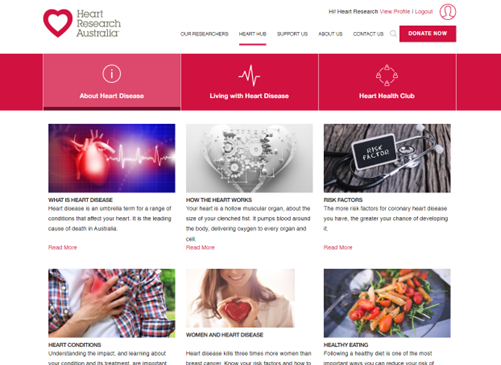
Nutritionist, Chloe Steele, gives us a guide for nutrition in those menopausal years. What should you eat, why you should focus on protein, healthy fats, whole grains and fresh fruit and vegetables rather than going on a “diet”.
The hot flushes have hit or you can feel they are on their way…. What should or shouldn’t you be eating through this time of menopause. Your body may change, that’s ok. The hormones will do what they do, but what can you do, to be as healthy as you can be, to help minimise your symptoms whilst setting your body up to be the healthiest it can be once the reduction of oestrogen reduces your protection for heart disease.
Menopause
Menopause signifies a stage in a woman’s lifecycle when reproductivity stops and a major hormonal shift occurs. With this can come the well-known occurrence of hot flushes, mood swings, weight gain, insomnia, and fatigue. Whilst for some women these can cause problems and discomfort, it is the underlying changes that don’t always present with symptoms that can be the real cause for concern. With menopause comes an increased risk of heart disease, which is one of the world’s leading causes of death in women over the age of 50 1. It is thought that there are several changes in the body that can occur during menopause, which may contribute to the development of this disease. However, it is not all doom and gloom, there are simple nutritional adjustments that can be made during this time to reduce the risk of its development.
Menopause and heart disease
Menopause is a continuum of change with 3 distinct stages. Perimenopause is the time leading up to menopause, when the hormones oestrogen and progesterone are fluctuating, and menstrual cycles can become irregular. Menopause is when progesterone and oestrogen levels decline, and the menstrual cycle stops. Post-menopause is the time after menstruation has ended and is officially recognised after 12 months with no period.
So why does a woman’s chance of developing heart disease increase so much after menopause? Low levels of oestrogen have been associated with an increased risk of heart disease2 and this may be due to several reasons. Amongst these are two that can be managed through what we eat. Menopause has been associated with an imbalance between the good and bad fats in our blood. One reason for this is that oestrogen can help to regulate the body’s production of fats such as low-density lipoprotein, cholesterol, and triglycerides. When oestrogen is low, such as during menopause, these fats, which are also in what we eat, can become increased in the blood. These could damage the blood vessels of the heart and may eventually be stored as excess body fat, increasing the risk of heart disease 3.
Low oestrogen levels can also affect other hormones in the body and insulin is one of these. This is responsible for taking dietary sugars out of the blood and into the body’s cells, where it is used to produce energy. However, as we age the body’s ability to recognise insulin decreases, resulting in less sugar being used for energy and more stored as fat, resulting in weight gain. This condition is known as insulin resistance and is also exacerbated by diets high in refined and processed sugar. Oestrogen helps to improve the body’s ability to recognise insulin 4, so when oestrogen is decreased, the chance of developing insulin resistance is increased.
Menopause and nutrition
When thinking about what we eat during menopause, the aim is to prevent the development of insulin resistance, and balance blood lipids, which, as discussed, can be the cause of weight gain and a contributor to the risk of heart disease. Whilst it would seem logical that decreasing fat intake would limit weight gain during menopause, this has been shown to not be the case 5. Low fat diets may promote weight gain, as we tend to supplement the fat with refined carbohydrates, i.e., sugar. So, what should be the focus during this time?
High intakes of vegetables and fruits
Fruits and vegetables are packed with fibre, vitamins, minerals, and antioxidants, all of which can help to prevent large amounts of insulin from being produced and help balance blood sugar levels. Eating vegetables at the start of a meal, may also ensure that insulin production is kept to a minimum when you eat any subsequent foods. High intakes of fruit and vegetables have also been shown to help with symptoms such as hot flushes 6.
High quality protein
Eating high quality protein can promote the development of muscle, which is essential for preventing fat gain. Naturally fed meat, such as grass-fed cows and free-range chicken fed a mixed diet, are higher in protein and lower in sugar and saturated fat. People following a vegetarian and vegan diet should ensure that every meal contains a plant-based protein such as lentils, beans, nuts, seeds or even a protein powder such as hemp or pea.
Whole grains
Diets with three or more servings of whole grains such as brown rice, barley, quinoa, and rye have been shown to reduce the risk of developing heart disease 7. Add them into salads and serve them at every meal to ensure they become a mealtime staple.
Eat healthy fats
Diets with plenty of healthy fats, have been shown to be of benefit in reducing the risk of the development of heart disease 8. Extra virgin olive oil, fatty fish such as mackerel, salmon, and tuna, and seeds like flax and chia, all contain polyunsaturated fats that can benefit heart health and may improve menopause related symptoms 9.
Avoid sugars and processed foods
Sugar and processed foods rapidly increase blood sugar levels and if continually consumed, keep them elevated and contribute to insulin resistance. This will make weight loss very difficult and increase the risk of developing heart disease.
Limit alcohol intake
Excessive alcohol intake can have a detrimental effect on blood sugar. Aside from this, high intakes of alcohol during menopause can contribute to poor sleep. When we are tired, we are more likely to eat high energy, nutrient poor, processed foods, and these can contribute to weight gain and heart disease. So, limit your alcohol intake and enjoy those days when you wake up feeling fresh and ready to take on the world.
Nutritionist Chloe Steele has provided this information for Heart Research Australia Heart Health Club members. If you are not a member you can sign up here.
For more information about Heart Disease and tips for being heart health, check out our Heart Hub here.

References
1. Stevens GA, Mathers CD, Beard JR. Global mortality trends and patterns in older women. Bull World Health Organ. 2013;91(9):630-639. doi:10.2471/blt.12.109710
2. Sutton-Tyrrell K, Wildman RP, Matthews KA, et al. Sex hormone-binding globulin and the free androgen index are related to cardiovascular risk factors in multiethnic premenopausal and perimenopausal women enrolled in the study of women across the nation (SWAN). Circulation. 2005;111(10):1242-1249. doi:10.1161/01.CIR.0000157697.54255.CE
3. Ko SH, Jung Y. Energy metabolism changes and dysregulated lipid metabolism in postmenopausal women. Nutrients. 2021;13(12):1-12. doi:10.3390/nu13124556
4. Yan H, Yang W, Zhou F, et al. Estrogen improves insulin sensitivity and suppresses gluconeogenesis via the transcription factor Foxo1. Diabetes. 2019;68(2):291-304. doi:10.2337/db18-0638
5. Ford C, Chang S, Vitolins MZ, et al. Evaluation of diet pattern and weight gain in postmenopausal women enrolled in the Women’s Health Initiative Observational Study. Br J Nutr. 2017;117(8):1189-1197. doi:10.1017/S0007114517000952
6. Kroenke CH, Caan BJ, Stefanick ML, et al. Effects of a dietary intervention and weight change on vasomotor symptoms in the Women’s Health Initiative. Menopause. 2012;19(9):980-988. doi:10.1097/gme.0b013e31824f606e
7. Gil A, Ortega RM, Maldonado J. Wholegrain cereals and bread: a duet of the Mediterranean diet for the prevention of chronic diseases. Public Health Nutr. 2011;14(12 A):2316-2322. doi:10.1017/S1368980011002576
8. Estruch R, Ros E, Salas-Salvadó J, et al. Primary prevention of cardiovascular disease with a mediterranean diet. N Engl J Med. 2013;368(14):28. doi:10.1056/nejmoa1200303
9. Herber-Gast GCM, Mishra GD. Fruit, Mediterranean-style, and high-fat and -sugar diets are associated with the risk of night sweats and hot flushes in midlife: Results from a prospective cohort study1-3. Am J Clin Nutr. 2013;97(5):1092-1099. doi:10.3945/ajcn.112.049965
Donate today to keep families together
Heart disease affects 2 in 3 Australian families. Your donation can help make medical breakthroughs in heart disease happen and save lives.

